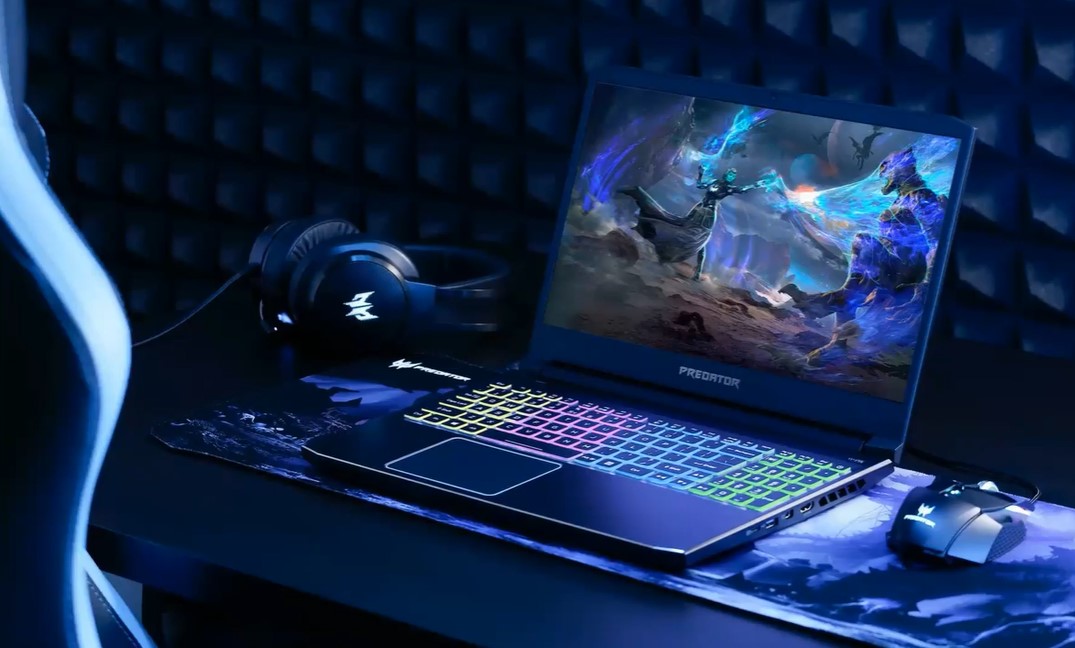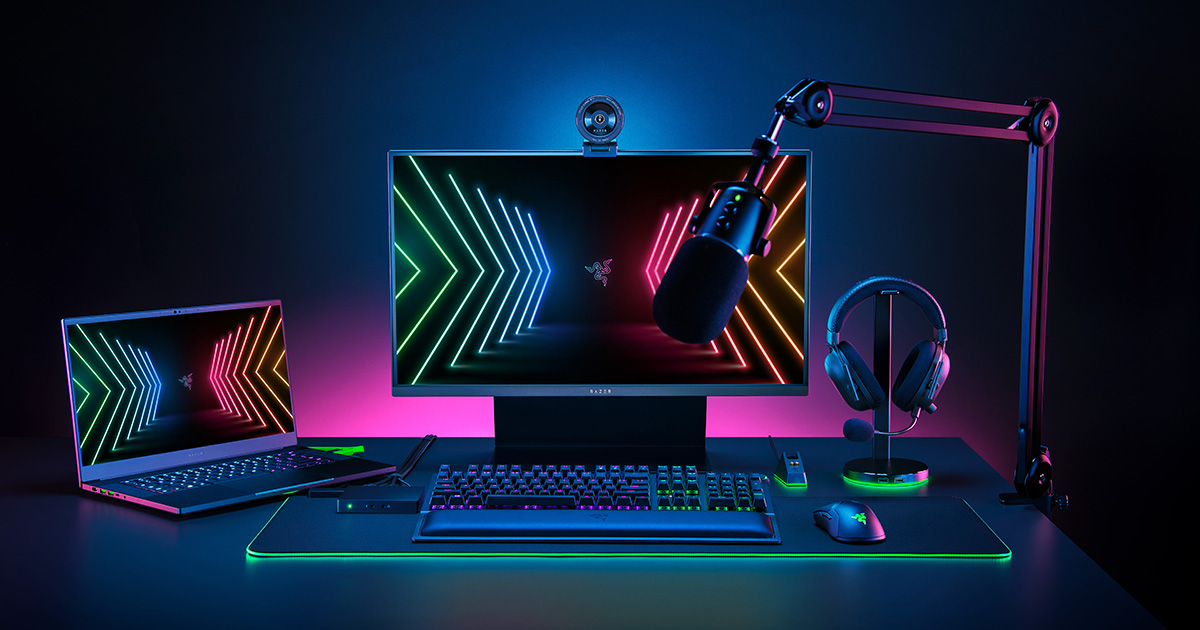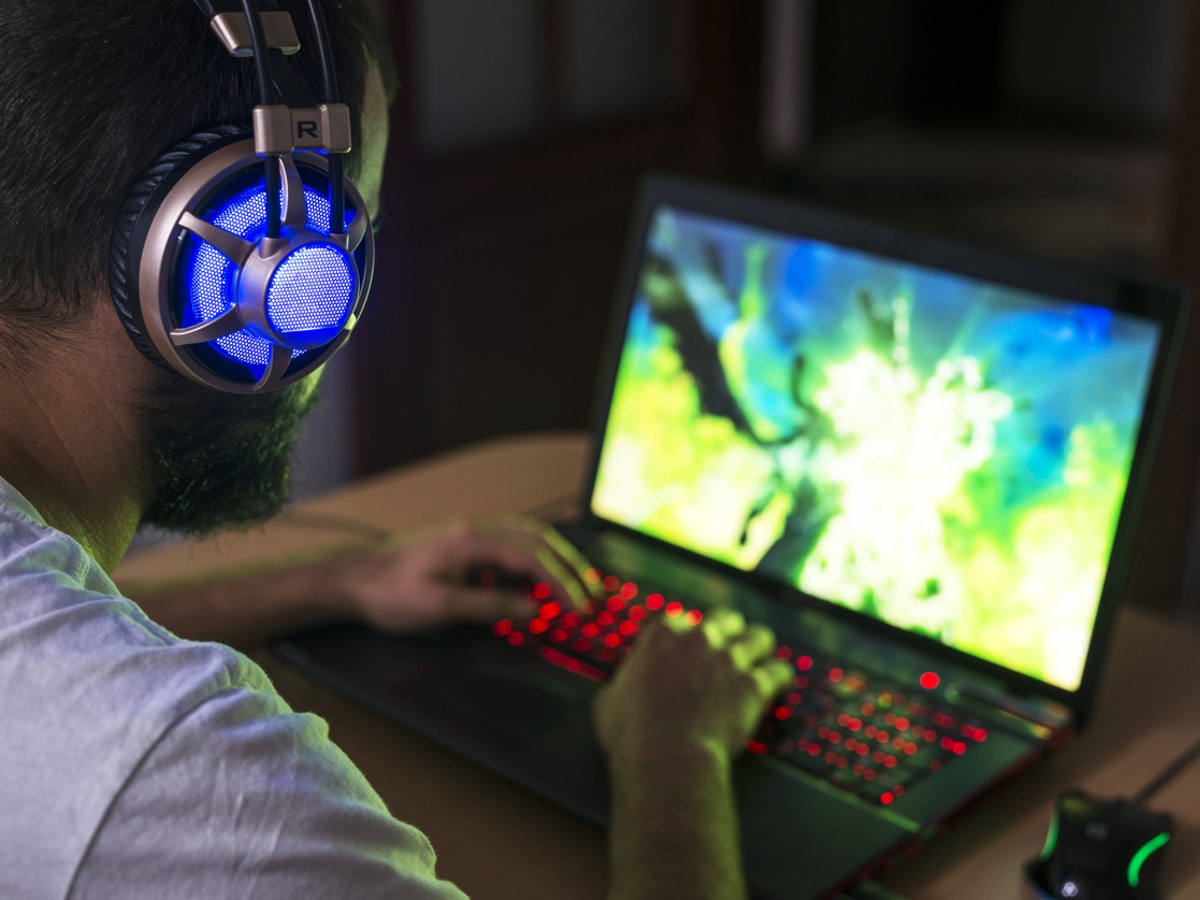For gaming enthusiasts or those entering the gaming world, the choice between a gaming laptop and a desktop can shape their gaming journey. Both have their merits and drawbacks, and the optimal choice varies based on individual needs and preferences. This guide looks into the key factors you should consider—performance, portability, customization, cost, and future-proofing—to navigate the debate and make an informed decision.
Performance: Raw Power and Speed
Desktops: The Powerhouses
Desktops are synonymous with high performance. They house powerful processors and graphics cards that often outperform their laptop counterparts, mainly due to better cooling systems that allow for more consistent high-speed performance without thermal throttling. Gamers who prioritize graphics quality and frame rates tend to favor desktops.
Laptops: Balancing Act
Gaming laptops have become more powerful over the years, with manufacturers finding ways to pack strong processors and GPUs into compact chassis. While laptops tend to trail behind desktops in peak performance, they still offer a solid gaming experience, particularly for mainstream titles and are catching up rapidly in the high-performance gaming scene.

Portability: Gaming on the Go
Laptops: Play Anywhere Flexibility
Portability is where gaming laptops shine. They allow gamers to play their favorite titles anywhere, from coffee shops to friends’ houses, without much fuss. For gamers who travel frequently or have limited space, the ability to carry their entire gaming setup in a backpack is unbeatable.
Desktops: Anchored Power
With a desktop, gamers commit to a fixed gaming space. This setting offers stability and the assurance of a dedicated space optimized for gaming comfort and immersion, complete with larger monitors and perhaps a superior sound system. But, it comes at the cost of portability—desktops are not designed to be moved frequently.

Customization and Upgradability
Desktops: Freedom to Customize
The level of customization available on desktops is unmatched. From picking individual components like graphics cards and CPUs to adding RGB lighting and elaborate cooling systems, desktops offer gamers the freedom to create their perfect gaming machine—and to upgrade components individually as newer, more powerful options become available.
Laptops: Limited but Improving
Most gaming laptops come with limited customization options, typically restricted to storage and memory upgrades. While newer models are improving in this aspect, the scope of customization and upgradability in laptops pales in comparison to desktops. For those not interested in customization, however, this holds little weight in their decision-making process.

Cost: Budgeting for Your Gaming Set-up
Desktops: More Bang for Your Buck
Desktops generally offer more power per dollar than laptops. They’re often more affordable to upgrade too, as you can swap out older components instead of buying an entirely new system. This makes desktops a cost-effective option for gamers on a budget who still want top performance.
Laptops: Investment in Mobility
Laptops usually carry a higher price tag for comparable specifications to desktops, partly due to their mobile nature. The convenience of a portable gaming machine is often worth the extra cost for some users, but it’s an important consideration for budget-conscious buyers.

Preparing for the Next Wave of Gaming
Desktops: A Lengthy Lifespan
Desktop users can usually stay current with gaming technology by replacing outdated components with the latest ones, extending the life of their systems. As games become more demanding, desktop gamers can often keep pace by installing the latest hardware, making it a future-proof choice.
Laptops: Compromise with a Timeline
Gaming laptops are somewhat future-proof in that they are built to handle current and near-future gaming demands. However, the non-upgradable nature of most laptop components means that, eventually, an entirely new system is necessary to keep up with the latest games at high settings.

Ergonomics and Comfort
Desktops: A Space for Gaming Perfection
Ergonomics plays a vital role in the prolonged comfort of gaming. Desktop setups often facilitate ergonomic customization with adjustable monitors, keyboards, and chairs to sustain longer gaming sessions without discomfort. Gamers have the freedom to design their environment to meet their ergonomic needs, which can enhance the overall gaming experience and reduce the risk of strain or injury.
Laptops: Flexibility with a Caveat
While gaming laptops offer the flexibility to game anywhere, the comfort can be compromised due to the fixed screen and keyboard position. However, peripherals such as external keyboards, mice, and laptop stands can help create an ergonomic setup on the go. Still, these added accessories detract from the laptop’s inherent portability and can be a hassle to carry around.
Social and Multiplayer Considerations
Desktops: A Hub for Multi-Player Sessions
Desktops often serve as the heart of LAN parties and shared gaming experiences. The robust networking capabilities and the ease of connecting multiple gaming peripherals make desktops ideal for social gamers who prefer in-person multiplayer sessions. Moreover, customization options can include multi-display setups that enhance shared gaming sessions, making desktops a communal hub for gaming.
Laptops: Online Connectivity and Casual Gatherings
Gaming laptops, with built-in Wi-Fi and Bluetooth, offer a hassle-free way to connect to online multiplayer games. They are well-suited for gamers who primarily play online or those who engage in more casual social gaming at various locations. The mobility of a gaming laptop allows gamers to join in on the fun wherever they are, though it might not support the extensive setup of an elaborate desktop rig for multiplayer matchups.
Eco-Friendly and Power Consumption Choices
Desktops: The Power-Hungry Beasts
Desktops are known for their high power consumption, which is necessary to fuel the performance of top-tier gaming components. While there are ways to build more energy-efficient desktops, they typically require a more substantial power draw compared to laptops, making them less eco-friendly overall. Gamers concerned about their carbon footprint may view this as a significant factor in their decision-making.
Laptops: Energy Efficiency on the Go
Gaming laptops are generally more energy-efficient than desktops. Their components are optimized for lower power usage, reflecting in reduced electricity bills and a smaller environmental impact. For the eco-conscious gamer who also values portability, a gaming laptop might be the preferred choice, offering the best of both worlds—moderate gaming performance and energy efficiency.
The gaming laptop vs. desktop debate is multifaceted and there’s no one-size-fits-all answer. Desktops boast performance, customization, and upgradability with a longer gaming lifespan at a lower cost. Laptops offer the undeniable appeal of portability and the convenience of a compact, all-in-one system, albeit usually at a higher price point and with a shorter cutting-edge life. Your decision should hinge on what’s most important to you in your gaming experience. Consider your current gaming habits. Also, think about your future gaming plans. As you make your choice, weigh the siren call of portability. Balance it against the steady allure of power and potential.
